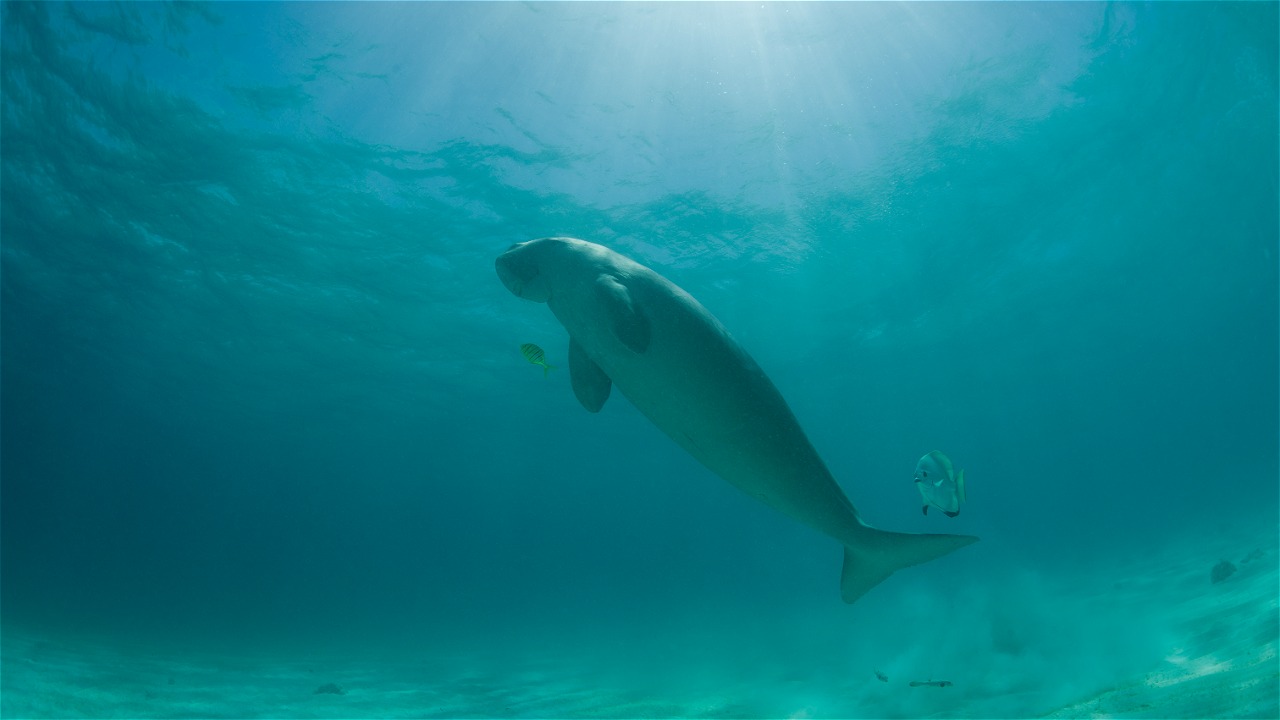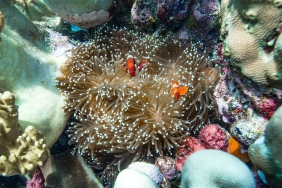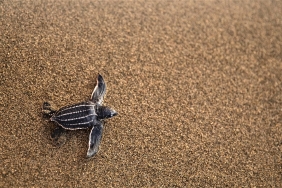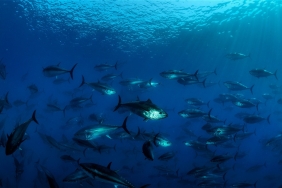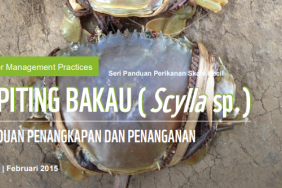WWF INVITES JOURNALISTS TO HELP OPEN INDONESIA'S EYES TO DUGONG AND SEAGRASS CONSERVATION
By: Nisa Syahidah (Sunda Banda Seascape Communication & Campaign Assistant, WWF-Indonesia)
"Alor is the land of friendship. Alor is a paradise in the east of the sun. God and our ancestors allow us to live on this island, to eat from this land," Alor's Regent, Aman Djobo, stood side by side with Arifin Putra in front of his office (27/11), in front of several of our cameras that were shooting for a promotional video for coastal ecosystem conservation in the Pantar Strait SAP and Surrounding Waters, Alor Regency.
"So we must protect and care for this beauty and gift for the future, because nature and humans are interdependent," he continued to show solemnity. Alor 1 then shook Arifin's hand and expressed his appreciation.
In his role as Ambassador of the Dugong and Seagrass Conservation Project (DSCP), Arifin discovered the beauty of this "paradise in the east of the sun" not only from the charm of the rare dugongs that inhabit Mali Beach. But also from the rich culture, the hospitality of the people, and how charming the clear waters of Alor are even along the only highway that connects the capital Kalabahi to Alor Kecil.
This was also what Arifin told fellow journalists from Mahensa Express, Teropong Alor, Warta Alor, NTTupdate, Kalabahi Pos, and Metro Alor who were present that morning (28/11) at Pulo Alor Hotel. We gathered Alor journalists to discuss dugong and seagrass conservation with WWF and the Marine and Fisheries Service (DKP) of Alor Regency. On this occasion, Arifin also explained the code of conduct for interacting with dugongs.
"Dugongs in Alor have unique characteristics, different from most dugongs that are shy to appear," said Casandra Tania (Marine Species Officer, WWF-Indonesia). "It is precisely this uniqueness that is a challenge so that it is protected and managed properly without forgetting the nature of dugongs as wildlife in nature," said Arifin.
The discussion that morning was quite lively with a focus on the challenges of dugong management in Alor in the future. Like us, the journalists were concerned about the future of dugong management. They made various suggestions, such as setting a schedule for official visits so that the dugongs do not get tired, to emphasizing the need for regeneration and regeneration of dugong guards at Mali Beach. Media partners also questioned the clarity of the status of the delegation of management authority to the provincial level. "Hopefully, in 2018, there will be a real step of management from the provincial level for this Pantar Strait SAP," concluded Rahmin Atapala, Head of DKP Alor Regency.
The next day (29/11), we also took the time to invite fellow journalists in Kupang to discuss similar matters in a luncheon with the DKP of East Nusa Tenggara (NTT) Province, the National Aquatic Area Conservation Center (BKKPN) Kupang, the Provincial Aquatic Conservation Council (DKKP) NTT, and the Denpasar Coastal and Marine Resources Management Center (BPSPL) NTT Working Area.
"The discussion about dugongs is interesting, this is the first time it has been held here," Kristo, a journalist from Timor Express, spoke up on behalf of colleagues from Sergap.id, NTTonlinenow, Kupangmedia, Pos Kupang, Victory News, as well as contributors from NET TV, Rajawali TV, Metro TV, RRI, Kompas TV, and MNC Group. "I wanted to know, how many dugong populations are there and how important are these mammals to protect?" he asked.
"Dugongs are needed by the seagrass ecosystem, like a tractor that loosens the seagrass field, launches the energy cycle, thus making it fertile," said Arifin Putra. "The presence of dugongs indicates the health of a seagrass ecosystem. Although there is no data on the population and status of dugongs in Indonesia, in April 2016 through the first dugong and seagrass habitat symposium by DSCP, we mapped indications of the distribution of dugong locations in 19 provinces in Indonesia," Casandra added. "One of them, several points in NTT - but only one is actually confirmed, which is in Mali, Alor," she concluded.
"Dugong management requires a joint partnership - government, NGOs, all stakeholders, in covering ecological, socio-economic, and cultural aspects," quoted Ikram Sangaji (DKP NTT Province), who was confirmed by Anton Wijonarno (Marine Protected Area (MPA) for Fisheries Manager, WWF-Indonesia). "The spirit of conservation is in partnership and collaboration, it can't go it alone," he concluded.
Just as Amon Djobo mentioned that Alor is the land of brotherhood, in conservation, all stakeholders are brothers. As in the lego-lego that we danced with the Abui Tribe in Takpala Village (27/11), that the lyrics of the song mean unity, the same without discriminating. All of us, together, want to protect coastal ecosystems in Alor - and in Indonesia.

